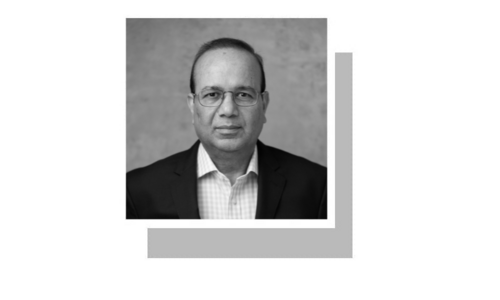THE death of Qandeel Baloch has brought to the forefront the debate about the status of women in this country. Since the news of the social media star’s murder, allegedly at the hands of her brother, we have learned many uncomfortable facts about our society, its leaders, and its attitudes towards women. We have been made to realise that the progress women have been making in this country remains useless if their basic safety cannot be guaranteed by the state.
In Pakistan, women are being encouraged to study, to think of careers, to think of themselves as entrepreneurs. Taking up an unconventional career, such as a fighter pilot or the CEO of a multinational company, is presented as a valid option for our lives, beyond the traditional roles of marriage and motherhood. Our government promises to do everything it can to support us. Foreign countries pour aid into programmes that promote women’s empowerment. ‘When women do well, Pakistan looks good’ is the mantra we desperately want to believe.
Yet these are all false promises. Our physical safety is still compromised: we can be beaten, abused, molested, assaulted and even murdered, and the perpetrators of those crimes will get off lightly, if they even see the insides of a courtroom or jail cell. There is still no law that clearly and unequivocally criminalises abuse, domestic violence, or sexual harassment against us. If the law is there, mechanisms to enforce it do not exist. There is still no amendment to honour killing laws labelling this kind of murder a crime against the state each time it happens.
Pakistanis have truly ugly attitudes towards women.
The second thing we now know is that Pakistanis have truly ugly attitudes towards women. We claim to respect women, but this is not respect for us as human beings, for our talents, accomplishments, achievements. This ‘respect’ is, instead, directly proportional to two things: how much we fear the woman’s male relatives, and how well the woman in question manages to repress and suppress herself in public and private. If both factors are high, a Pakistani woman gains respect. Reduce or eliminate those two factors, and the ‘respect’ vanishes, replaced by abuse and censure.
Recently four Pakistani women journalists working for the BBC spoke out about how they are abused and threatened by men. This abuse comes not for their work but for their very presence in the public eye. “As a female journalist, harassment becomes personal and well beyond questioning the credibility of the work,” says Amber Shamsi.
“I was left reeling from attacks that had nothing to with my journalism and everything to do with my gender,” says Saba Eitzaz. Iram Abbasi observes, “One user said I didn’t have a ‘good family background’. Another asked how I could come from a reputable family if I wore sleeveless shirts. For the same reason, another user said I was wearing ‘dirty’ and ‘un-Islamic’ clothing.”
When Pakistanis say they respect women, what this really means is that they respect women as long as they conform to certain norms of behaviour. These include remaining invisible in the public eye, observing strict dress codes, curtailing interactions with the opposite sex, and remaining submissive to the male authority figures in their lives. When a woman steps out of those boundaries, the guise of respect is quickly dropped and the attitude towards women becomes that of a predator and his prey.
If a woman dares to stand on her own, not associated with any protective male figure, and dares to live life on her own terms, men decide she is a piece of meat they can abuse, take out their frustrations on, ridicule, and threaten. This conditional respect is worse than no respect at all, because it frightens and intimidates women, and forces them to ally with the men who abuse instead of the women who are abused.
Then, there’s the concept of honour: not honour that arises from personal integrity or acts of chivalry, but the honour that is linked to a fragile masculine ego. Men no longer need to feel inadequate if they don’t have money or high positions: their honour and respect comes from how well they can control their women. This kind of ‘honour’ is the last resort of the insecure, the weak, the unconfident. It has tribal origins, not Islamic ones; it is only ever applied to police women’s actions. Under the guise of keeping order in society, it makes society an uglier place, not a better one.
‘Honour’ and ‘respect’, two concepts we regard as the cornerstones of Pakistani society. But for women living in this society, they mean very different things than they do for women elsewhere. And as long as Pakistani women continue to die for ‘honour’ and ‘respect’, our country will remain disgraced in the eyes of the rest of the world.
The writer is an author.
Twitter: @binashah
Published in Dawn, July 24th, 2016












































